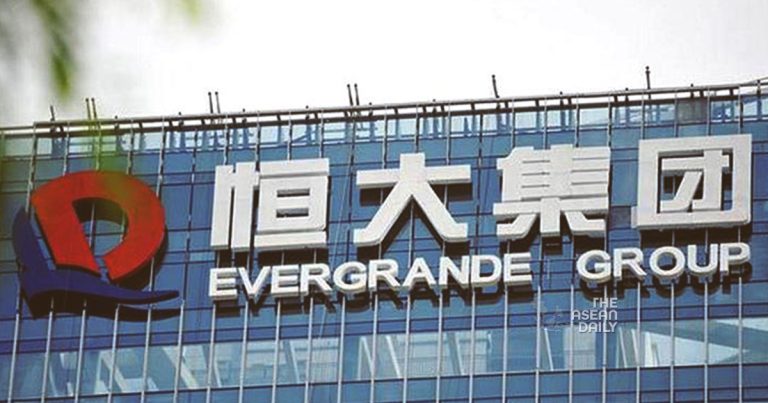18-8-2023 (BEIJING) China’s Evergrande Group, formerly the nation’s second-largest property developer, has taken a momentous step by filing for bankruptcy in New York on Thursday. This move comes as the conglomerate’s woes have escalated, marked by heavy borrowing and a default on its debts in 2021, catalyzing a profound property crisis that continues to reverberate throughout China’s economy.
Evergrande has initiated Chapter 15 bankruptcy protection, a legal framework designed to facilitate collaboration between US bankruptcy courts and foreign jurisdictions in cross-border insolvency cases. Through this measure, a US court is empowered to intervene in insolvency cases involving entities from other nations.
As of now, Evergrande has not provided an immediate response to CNN’s request for comment.
Impact of Evergrande’s Default
China’s real estate sector, once a cornerstone of the world’s second-largest economy, constituted up to 30% of the nation’s GDP. However, Evergrande’s default in 2021 unleashed seismic shockwaves throughout China’s property markets, leading to repercussions for homeowners and the broader financial ecosystem.
This default coincided with Beijing’s efforts to curb excessive borrowing by developers to rein in skyrocketing housing prices.
In the wake of Evergrande’s downfall, several prominent developers in China, including Kasia, Fantasia, and Shimao Group, have faced their own defaults. Most recently, another major Chinese real estate entity, Country Garden, issued a warning, hinting at possible debt management measures, raising speculations about an impending debt restructuring as the company grapples with cash flow challenges.
The industry’s predicament has been further exacerbated by an overarching economic deceleration within China.
A Path to Recovery?
Evergrande, a colossal enterprise boasting more than 1,300 real estate projects across over 280 cities, as well as non-real estate ventures such as electric vehicles, healthcare, and theme parks, has struggled to meet its loan obligations since officially defaulting in late 2021. By the end of the previous year, its debt burden had ballooned to 2.437 trillion yuan ($340 billion), equivalent to approximately 2% of China’s entire GDP.
Furthermore, Evergrande reported a staggering $81 billion shareholder loss in 2021 and 2022.
Earlier this year, the company unveiled a much-anticipated debt restructuring plan, heralded as China’s largest. The developer confirmed “binding agreements” with international bondholders regarding the plan’s key terms. Evergrande articulated that this restructuring would alleviate offshore indebtedness pressure, facilitating operational resumption and domestic issue resolution.
As outlined in the plan, Evergrande aims to restore normalcy within the next three years, albeit necessitating additional funding ranging from $36.4 billion to $43.7 billion. The conglomerate underscored a warning that its electric vehicle arm could face closure without fresh investment.
Since then, some funding inflows have materialized. This week, Dubai-based automotive firm NWTN disclosed a strategic $500 million investment in Evergrande’s EV division, in exchange for a stake of approximately 28%.




